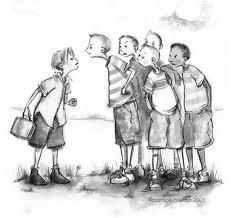One of the most powerful concepts to implement in any relationship is UNCONDITIONAL LOVE. So the question truly becomes how you define unconditional love, and what are you willing to do to mend the hurt and pain you are currently feeling without passing blame onto the other person. Each person must communicate their love in a calm, clear, and direct, fashion in order to demonstrate respect to their partner. Our emotions have an amazing ability to unite people; however, left unchecked, they possess the same propensity to divide us.
Daniel Goldman(http://www.mbni.med.umich.edu/mbni/faculty/goldman/goldman.html) defines EMPATHY, which is a significant factor involved in unconditional love, in three ways. The first is cognitive empathy, meaning that we can understand how the other person thinks; we see his or her point of view. He states "this makes for good debaters, sales people and negotiators. On the other hand, people who have strengths in cognitive empathy alone can lack compassion – “they get how you see it, but don't care about you". The second is emotional empathy, which refers to someone who feels within herself the emotions of the person he or she is with. Goldman states "this creates a sense of rapport, and most probably entails the brain's mirror neuron system, which activates our own which in turn circuits the emotions, movements and intentions we see in the other person". This type of empathy creates opportunities of compassion and love. Consequently, this is where the third type of empathy, empathic concern, comes into play. Empathic concern "means we not only understand how a person sees and feels in the moment, but also prompts us want to help them if we sense the need". This unlocks the door to true empathy and unconditional love.
As you read this article, can you think of an experience where someone demonstrated Unconditional Love? What area of empathy do you most find yourself demonstrating (cognitive empathy, emotional empathy, or empathic concern)? Do you believe you have to hurt or be hurt to receive love?
 If you are in a relationship in which you are hurting the ones you love physically, emotionally, or mentally we can help. For more information and a free consultation, please call 1-888-992-6479 or visit our website at www.nvamc.com today. Help is just a phone call away!
If you are in a relationship in which you are hurting the ones you love physically, emotionally, or mentally we can help. For more information and a free consultation, please call 1-888-992-6479 or visit our website at www.nvamc.com today. Help is just a phone call away!For additional resources, including assistance with a safety plan, please call the national domestic violence hotline at 1-800-787-3224 or visit their website at http://www.thehotline.org/ today.

 peace and order in the self, the mandala
peace and order in the self, the mandala
